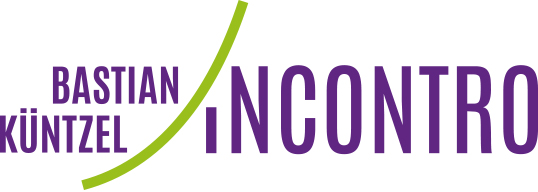A week ago I had the great chance to spend two days in a restaurant kitchen in Germany. The occasion was my mother’s birthday. She had rented the restaurant of my first cooking teacher and now good friend, Martin Herzog, and invited 38 of her closest friends. I had developed a four course menu, each course telling the story of a part of my mother’s past and present. It was a great creative challenge and I loved every minute of it. I was incredibly thankful to Martin, who left me all the creative control and advised and supported me with grace as I took over HIS restaurant. What an act of trust, humility and, well, friendship.
Here’s a few things I learned along the way:
1. Hard work isn’t hard when it has purpose.
The two days I worked in the kitchen, I was standing upright for about 10 hours in a row. No sitting, not even to eat a short lunch snack. Now, for the chefs in the kitchen, this was completely normal. 10 hours, in fact, would be on the low end of a work day. For me it wasn’t normal. Ok, when I run a training, I stand a lot. But on most days, my watch needs to remind me to stand up every once in a while. But as I was standing in the kitchen, it didn’t seem like work to me, it wasn’t even hard. And as I reflect on this, I think it’s because every little thing that we did all day, every movement, every cut, every stir, every discussion had a direct purpose. Each part was going to be put on the plate, contribute to a dish and complete the overall experience. Only unnecessary work is hard.
2. Being prepared equals being relaxed
When you have to send out 38 dishes in 5 minutes, each plate with 6-7 different components you have to be ready. And not ready when you need to be ready - you have to be ready already hours before. Because after that dish is another dish and after that another dish. I wish I had this degree of foresight and preparation in every training I run. And I’m sure plenty of people wish that their business endeavours would be this well prepared as well.
3. Taste, taste, taste
The little bucket with clean spoons in it is one of my favourite pieces of professional kitchen equipment. At a hands reach, each cook in the kitchen can reach for a spoon and taste their food. They can check their sauce, adjust the sweetness in the mousse and season the dip. Essentially, there can be no good food without buckets of clean spoons in the kitchen.
Whoever has heard me talk about feedback knows that this is an example I love to give. I talked about this a few years back at a TEDx Talk. You should watch it here.
4. Tell a story
A great plate of food is a good thing. It’s tasty, maybe it looks good, hopefully it’s nutritious. A plate of food that tells a story is a whole different thing. Of course it needs to be delicious - without question. But it becomes emotional, memorable and more than just a plate of food if it manages to tell a story. And this is true for almost any product: I love my backpack because it’s really, really well made. But I also love it because I know it was produced in a small factory in Seattle, designed by a man called Tom who’s been designing and making luggage since the 70s. I enjoy typing this on a computer that is a direct descendent from a little machine built by two young men called Woz and Steve. Using it allows me to be part of their story, just as carrying it around in my backpack allows me to be part of Tom's story.
When I work with clients, I try to understand their story and become a part of it. And I share my story and invite my clients to become part of that and just like that, we both are engaging in more than just a training, workshop or conference. It’s really rewarding.

